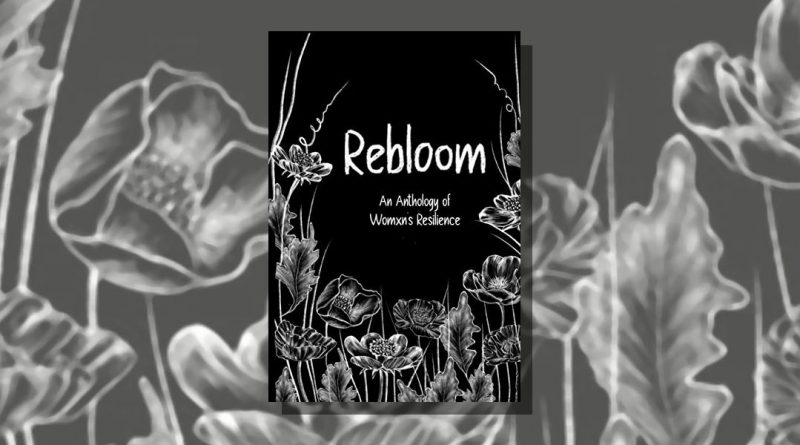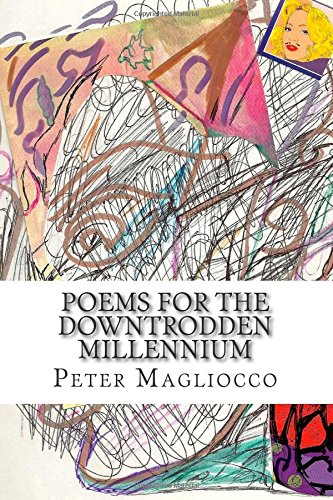Rebloom, An Anthology of Womxn’s Resilience ed Nikki Marone
-Reviewed by Emma Lee-
Rebloom is a poetry anthology that aims to explore the strength and resilience in womxn’s lived experiences. It posits that “resilience is one of womxn’s most remarkable traits”, using the metaphor of wildflowers growing in a patch of neglected space. The ‘x’ in place of the ‘e’ in ‘womxn’ indicates that the authors identify as women. Some of the poems do describe sexual violence, although not explicitly, so a content warning should have been considered. Taking the central metaphor of reblooming, Nikki Marone’s ‘Bloom’ starts
I was born a fighter,
Swaddled in Kevlar and siren song.
I learnt to don my armour prematurely.
Dragon thick.
I fancied myself phoenix,
Rising from the ashes.
This is a warrior woman, ready to battle the patriarchal world and misogyny. The poem continues:
I solemnly swear to be soft –
In a world so fucking hard.
Build boundaries, not bridges.
Wrap myself in petals.
In fields of flowers is where hope lays bare.
Finding peace at last.
It seems no woman is an island and a solo world is a harsh one. Independence is good, but it can be taken to an extreme. The rallying call of the warrior has softened to one that acknowledges she can’t battle alone: it takes a team to demolish a glass ceiling. And there is strength in nurturing and showing a kinder side. The last three lines though could be read as a hippy desire to return to nature, that womxn’s nature is to be the nurturer and gardener and that when womxn step out of these roles, unhappiness and conflict follow. I don’t think that’s the intention. The poem’s focus is that extreme independence is not a good thing but an understandable reaction to a hostile world where compassion and creating space for other perspectives are not welcome.
Annya Dasgupta’s ‘It Comes in Waves’, also looks at how to survive in a patriarchal world. The poet asks the sea how to survive,
Like us they said. Surge over
the breaker, collapse. Let the
wind pick you up again. Fold.
Loosen your hold. When you
are truly gone, you’ll live on.
The idea of becoming a warrior returns, but with teamwork – joining with the wind – to break over barriers. But there’s a twist. The waves advise to stop fighting and let go of the desire to control the flow. This seems to be an act of submission, yet the implication is that acceptance is a way of finding peace, a ‘focus on what you can change’ message; learn your limits and focus on your strengths.
Jeanette Willert’s ‘Rethinking Leda and the Swan’ compares paintings, by men naturally, of Leda apparently enjoying Zeus’ assault, with reality,
Having suffered a staggering blow,
flung backward by a surprising force,
the woman was trapped
beneath an insistent serpentine neck
and strong, clasping wings.
A cold, hard beak
pressed to her swooning lips,
the keel of his board feathered breast
pounded hard upon her soft flesh
Leda’s lack of muscle density and strength leaves her unable to fight back. Not struggling was a survival tactic, but her inability to fight back should not be read as consent or enjoyment. It then ends on the supposition,
Leda
would scoff at the possibility
that taking on
the brute’s knowledge
was worth any of it.
This is an argument against the cliché that what doesn’t kill you makes you stronger: the violation of boundaries and assault was not worth the knowledge it gave her. Strong womxn don’t choose to be, they are forced to be and no womxn would choose to endure a devastating assault in order to be a stronger, better person.
Glady Ruiz advises in ‘A Hundred Years of a Thousand Tries’,
So, give yourself to the summer,
to the breeze and winter rain,
to the harshness of the cold and ice –
spring will come again.Give yourself to the darkness,
send your roots down deep and strong;
give yourself to right in earnest,
persist against the wrong.
It returns to the notion of being true to yourself, changing what you can but not taking on the whole world at once. The advice centres on persistence.
The poets are based in the UK, USA, India and Canada, yet the same themes of persisting in the face of brutality unifies the poems and gives the anthology a strong sense of how universal the struggle against patriarchy is. Each poem explores the theme of resilience by describing why resilience is necessary and why resilient womxn need to stand firm. This gives the poems a similar voice. There was no discussion of what can be done to emerge into a world where resilience isn’t necessary or how the need for resilience can hamper growth. To go back to the central metaphor, wouldn’t those wildflowers thrive and become brighter and stronger if they were allowed to grow in a fertilised bed with space for them to grow? Rebloom doesn’t offer solutions but asks readers to admire the wildflowers in their neglected patch.





